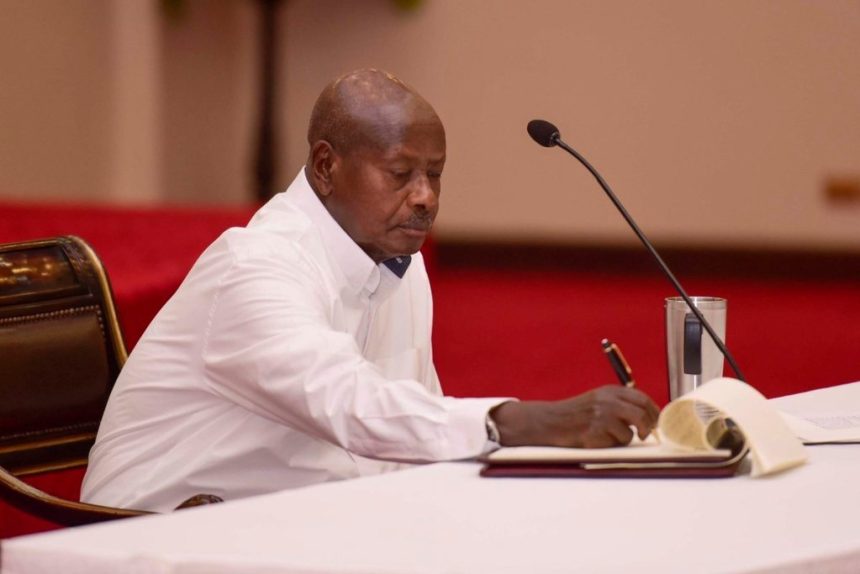President Yoweri Kaguta Museveni has directed the Minister of Finance to release 6 billion Ugandan shillings for the rollout of electronic medical records (EMR) in government health facilities.
This directive aims to curb drug theft and improve service delivery, following concerns raised by Kole North Member of Parliament, Dr. Samuel Opio Acuti.
During an NRM Parliamentary caucus meeting on Friday, Dr. Opio Acuti, who also serves as the Vice Chairperson of the health committee, informed the President that implementing EMR would significantly combat drug theft by ensuring drug traceability from the National Medical Stores to the patient.
He explained that EMR would also enable traceability of laboratory services, imaging services (such as X-rays and ultrasounds), and prevent patient diversion to private health facilities.
Dr. Opio Acuti highlighted the challenge that, despite the Ministry of Health’s requests for 6 billion shillings over the past two years for EMR rollout in regional referral hospitals, general hospitals, and health center IVs, the Ministry of Finance had not allocated the funds.
The Minister of Health, represented by Hon. Kawooya, confirmed the need for additional funds for the rollout. Consequently, President Museveni instructed the Minister of Finance to ensure the 6 billion shillings are provided, emphasizing their importance in curbing drug theft in government facilities.
In an interview, Dr. Opio Acuti stated that during several oversight visits by the health committee, they observed cases of patients being diverted from public to private health facilities to purchase drugs, undergo ultrasounds, and have lab tests, despite these drugs and services being available at the public facilities.
“In one health center III, we found a patient with antibiotics she had bought from a private drug outlet. However, upon checking the government drug store, we found it full of the same antibiotic. The health worker had informed the patient it wasn’t available. In another case, a patient was sent for ultrasound services to a private facility, with the claim that the one at the government facility wasn’t working. Upon checking, it was fully functional. Electronic medical records will help ensure traceability of every service,” the MP said.
“I have found that the health service seeking pattern in a government hospital is, in some cases, not linear as it should be, but a zig-zag pattern. A patient moves to the public facility but is then referred to a private lab for lab tests.
He then goes back to the public health facility and is again referred to a private clinic for imaging services. He returns and is again sent to a private pharmacy for medicines, even when all these are available.
This year, the budget for medicines increased by 139 billion shillings, but complaints of drug shortages still keep arising, even after NMS has just delivered their consignment. We need to stop this!” Dr. Opio Acuti added.
The MP noted that facilities that have implemented EMR have seen improved drug availability and a reduction in patient waiting times by almost half, due to increased clinician availability at the workstation, as the EMR also monitors the workload of each health worker.




















